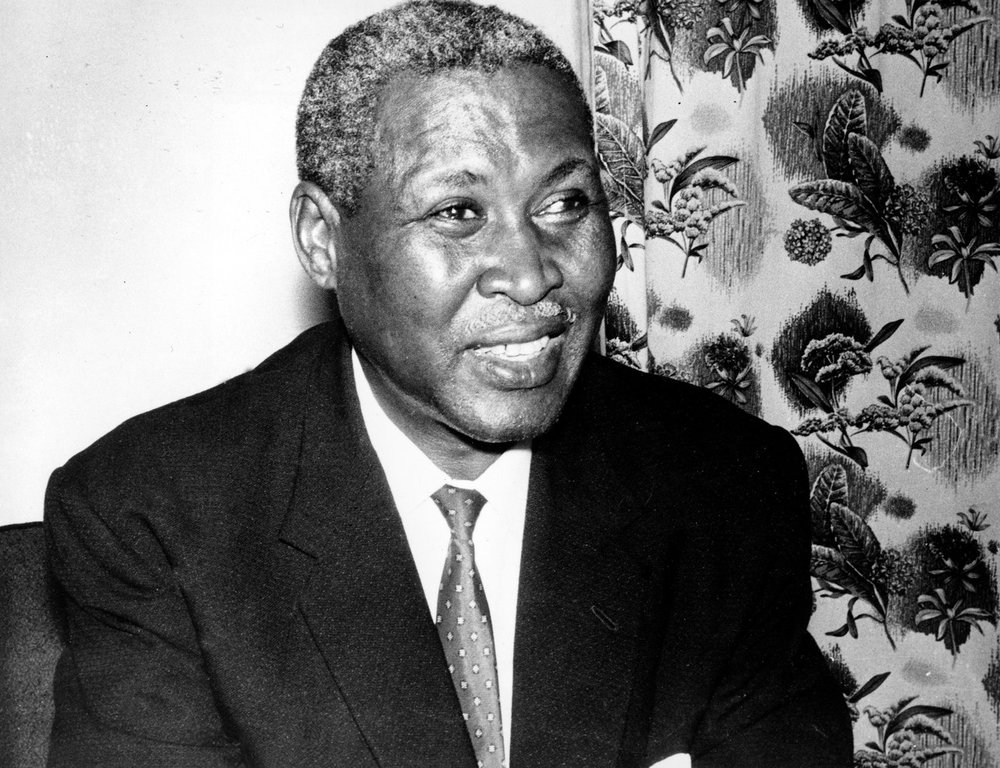New inquest rules South African Nobel laureate Albert Luthuli was beaten to death in 1967
Advertisement
Read this article for free:
or
Already have an account? Log in here »
To continue reading, please subscribe:
Monthly Digital Subscription
$0 for the first 4 weeks*
- Enjoy unlimited reading on winnipegfreepress.com
- Read the E-Edition, our digital replica newspaper
- Access News Break, our award-winning app
- Play interactive puzzles
*No charge for 4 weeks then price increases to the regular rate of $19.00 plus GST every four weeks. Offer available to new and qualified returning subscribers only. Cancel any time.
Monthly Digital Subscription
$4.75/week*
- Enjoy unlimited reading on winnipegfreepress.com
- Read the E-Edition, our digital replica newspaper
- Access News Break, our award-winning app
- Play interactive puzzles
*Billed as $19 plus GST every four weeks. Cancel any time.
To continue reading, please subscribe:
Add Free Press access to your Brandon Sun subscription for only an additional
$1 for the first 4 weeks*
*Your next subscription payment will increase by $1.00 and you will be charged $16.99 plus GST for four weeks. After four weeks, your payment will increase to $23.99 plus GST every four weeks.
Read unlimited articles for free today:
or
Already have an account? Log in here »
CAPE TOWN, South Africa (AP) — A new inquest into the 1967 death of South African Nobel Peace Prize winner and anti-apartheid leader Albert Luthuli has found that he was beaten to death, and it rejected a previous finding that he died as a result of being hit by a train.
Thursday’s judgment by a court in the eastern city of Pietermaritzburg came after more than 50 years of suspicion that Luthuli was killed by apartheid police because of his leadership of the African National Congress that opposed the system of white minority rule.
The South African government reopened an inquest into his death in April as part of a move to investigate high-profile apartheid-era killings that were allegedly covered up by authorities at the time.

A 1967 inquest had ruled that Luthuli was hit by a freight train near his home and his death was accidental, a finding that has always been viewed with suspicion because of the apartheid government’s involvement in covering up the political killings of opponents.
A judge overseeing the new inquest said that the evidence showed that Luthuli died of head injuries consistent with an assault, and said a notorious police unit known as the Special Branch was likely responsible — working with employees of the South African railway company.
“This ruling brings justice, truth, and dignity to the memory of one of South Africa’s greatest sons and to all those who suffered under apartheid brutality,” said the African National Congress party, which has led South Africa since the end of apartheid in 1994.
Luthuli was the president of the ANC from 1952 until his death. Nelson Mandela served as his deputy president for six years. Luthuli was also the first African to be awarded the Nobel Peace Prize when he was recognized in 1960 for his nonviolent struggle against apartheid.
The South African government has this year ordered other inquests into the apartheid-era deaths of political leaders and activists, after families have been calling for investigations for years. They include a new inquest into the death in police custody of iconic anti-apartheid figure Steve Biko in 1977.
South Africa’s post-apartheid government has also come under criticism for taking years to investigate the deaths, and President Cyril Ramaphosa has ordered an inquiry into allegations that investigations were deliberately blocked by authorities, including by previous ANC governments.
___
AP Africa news: https://apnews.com/hub/africa

